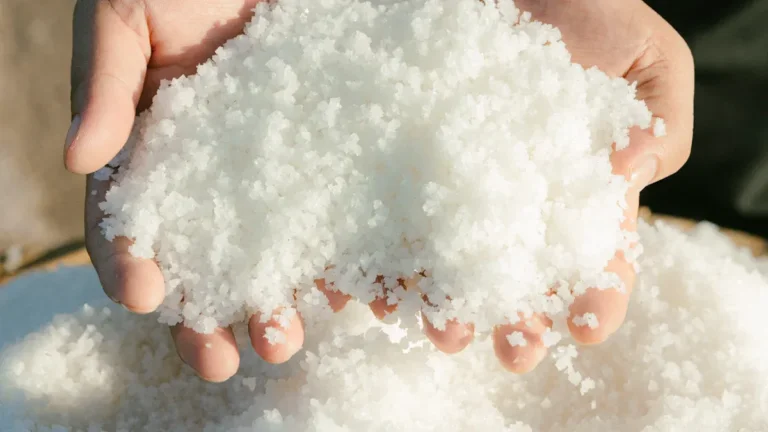Magnesium Chloride Desiccant
-1.jpg)
Buy Magnesium Chloride Desiccant
Magnesium chloride desiccant is a highly hygroscopic, salt-type material that absorbs ambient moisture and, once saturated, acts as a brine. It has high moisture absorption capacity (typically 100-200% of its weight) and performs better than frequent desiccants, like silica gel, in high humidity environments. Desiccants are usually manufactured in leak-proof, non-woven bags or hanging units to prevent condensation, corrosion, and/or mold throughout a broad temperature range (-20°C-60°C). Magnesium chloride creates little dust and is less corrosive than calcium chloride, making it appropriate for use in sensitive situations.
Applications of Magnesium Chloride Desiccant

Packaging & Transportation
If you want to reduce problems with humidity sensitive cargo using desiccants in maritime freight, you cannot do better than magnesium chloride desiccants. They are sold in leak-proof carry units for a suspended desiccant (sachet or hanging units) and can absorb more than 200 percent of weight in moisture to prevent potential “container rain” and mold and corrosion. Magnesium chloride desiccants turn taken moisture from the air into brine using a phase-change, which is absorptive and trapped in sealed pouches, which eliminates the potential for leakage; as conditions are kept stable over temperature changes. They are especially good for agricultural products, textiles, and machinery to be imported from a humid load to a dry (cold) destination, and provide clean and better conditions than the silica gel alternative in cases that involve a high humidity environment from -20°C to 60°C. It is interesting to note that magnesium chloride is less corrosive to metals than calcium chloride; so therefore it is and safer for transport that involve metals.

Food Industry
These desiccants inhibit the deterioration of bulk dry foods like grains, spices and beans during storage and transportation. Magnesium chloride is great at managing humidity in “whole load” sealed containers, keeping humidity low and therefore preventing mold growth and aflatoxin production in agricultural commodities. The formulation can be used neighboring food products and is FDA approved when properly barriered. With a high absorption capacity in humid climates, they prevent clumping and spoilage without affecting the product’s taste and smell. There are no toxic chemicals involved, and our brine-containment technology also guarantees no contamination, while being able to extend their shelf life for exports coming from tropical origins such as cocoa or dried fruits.

Construction Industry
Magnesium chloride protects hygroscopic building materials when in warehouse storage. It will prevent cement bags from prematurely hydrating, adhesives hardening, drywall and insulation from weakening, and maintains the proper humidity in sealed storage locations. These cost-effective bulk-dispensed options can be integrated with material pallets allowing them to work in unheated (-20°C to 60°C) facilities. It is important to remember the hygroscopic desiccant has a higher moisture-retaining capacity, and will keep the ground dampness and seasonal relative humidity from being a concern to your materials before they are installed. The lower chloride migration factor of magnesium in comparison to calcium will also mitigate the corrosiveness of this option.

Household Use
For damp residential spaces like basements, closets, and garages, magnesium chloride absorbers reduce humidity by >45%. Contained in hanging bags or drip-free containers, they prevent mold/mildew on stored fabrics, documents, and furniture by converting vapor to contained brine. The desiccant’s non-irritating properties make it safer for home use than traditional options, with visual saturation indicators for easy maintenance. Effective in areas up to 50m³, it provides passive moisture control without electricity, protecting belongings in seasonal high-humidity periods.
Why you choose us

Superior Moisture Absorption
Absorbs up to 200% of its weight in high-humidity environments, outperforming silica gel.

Reduced Corrosion Risk
Lower chloride migration compared to calcium chloride alternatives protects metal components.

Wide Temperature Resilience
Operates effectively from -20°C to 60°C for tropical exports and unheated storage.

Phase-Change Safety
Converts absorbed moisture into contained brine with zero leakage in leak-proof packaging.

Eco-Compliant Formulation
Non-toxic and FDA-compliant for food-adjacent applications with minimal dust emission.

